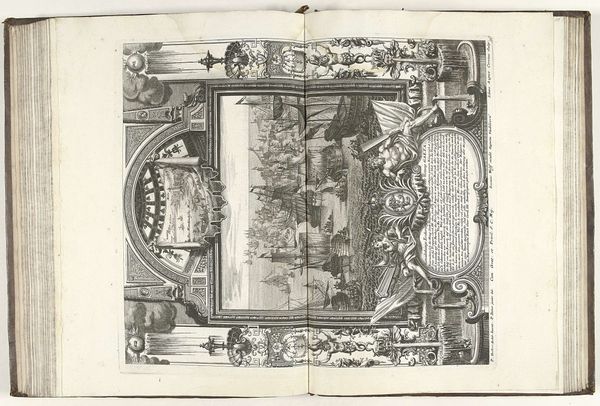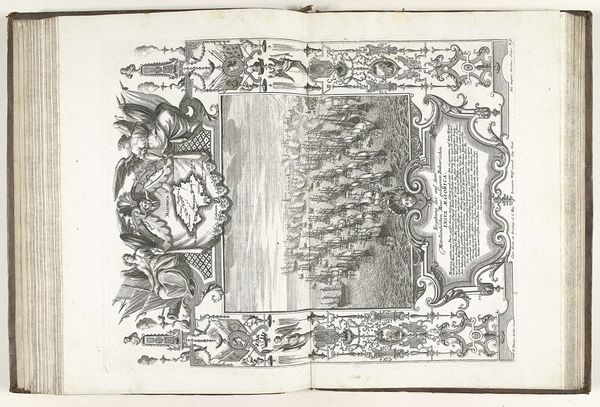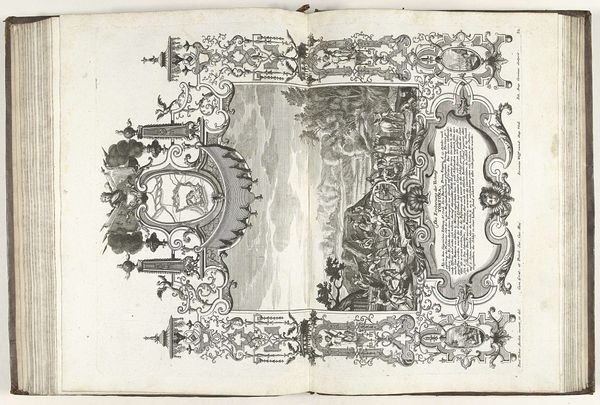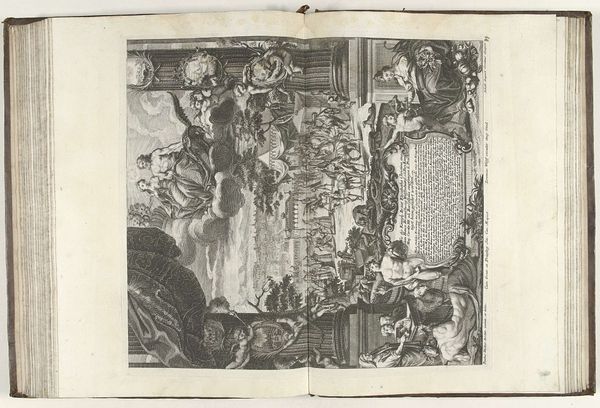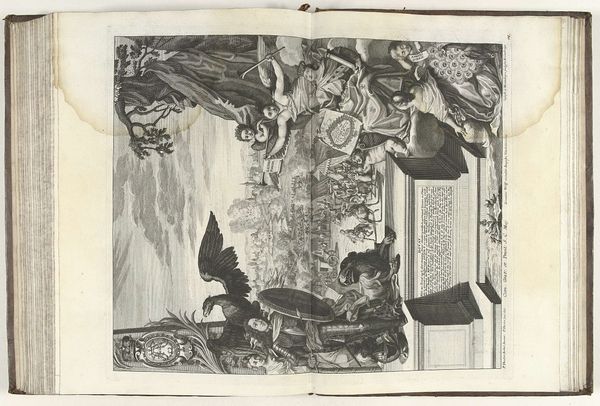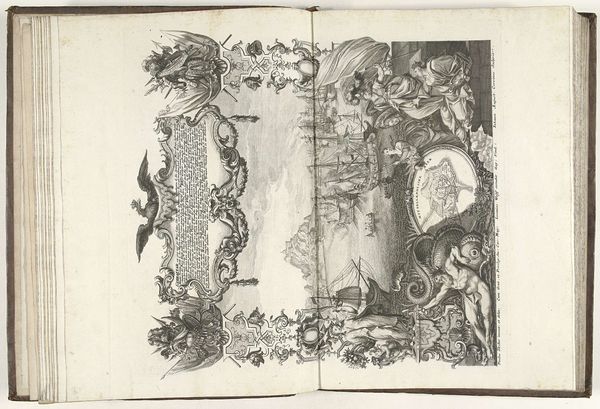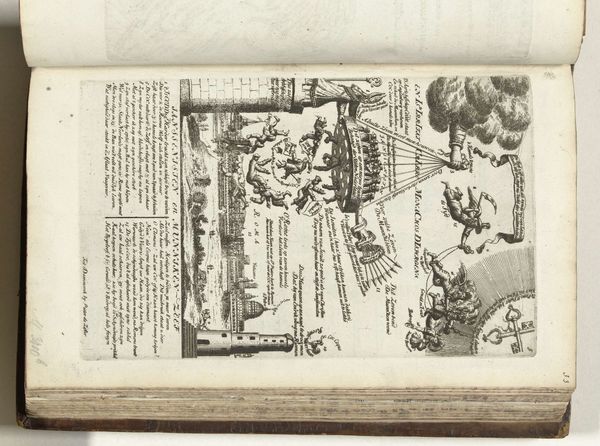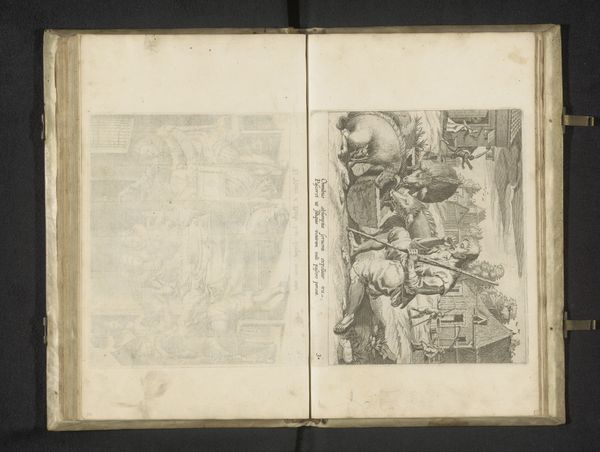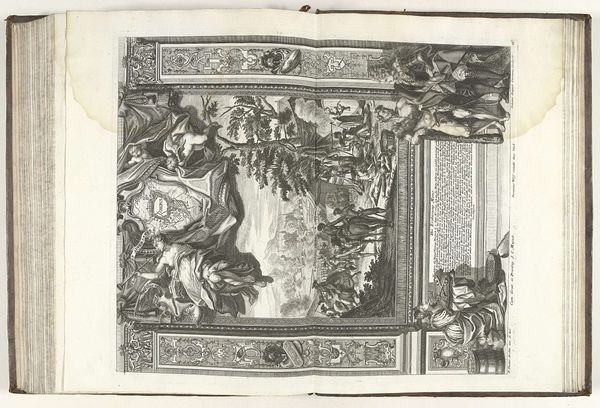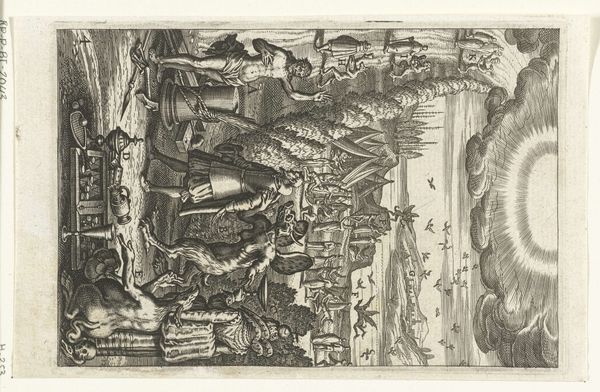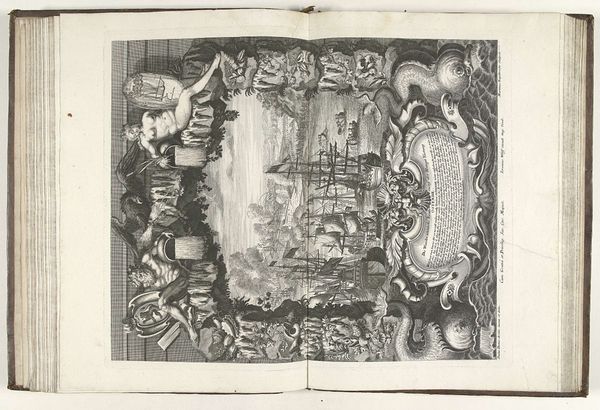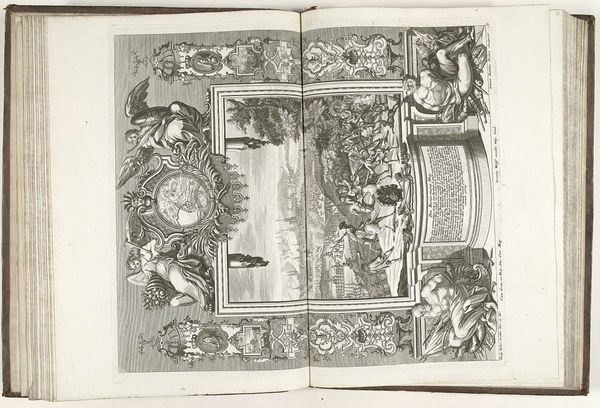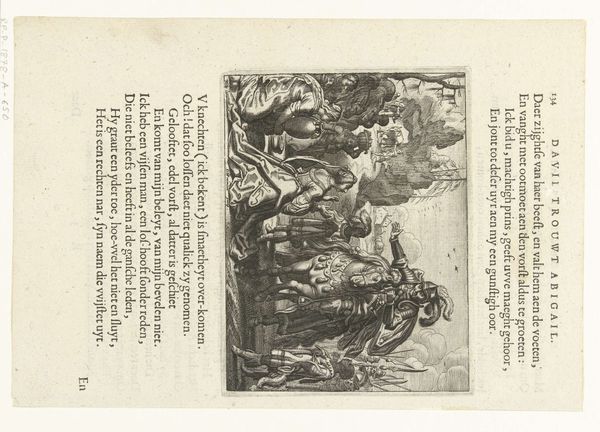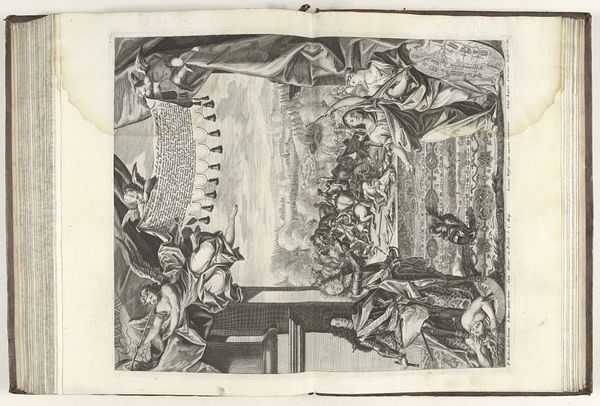
print, engraving
#
baroque
#
ink paper printed
# print
#
old engraving style
#
engraving
Dimensions: height 442 mm, width 374 mm
Copyright: Rijks Museum: Open Domain
Gottfried Stein created this engraving of the arrival of Maria Anna of Austria in Lisbon in 1708. It commemorates the arrival of a high-status figure and it invites us to consider the relationship between power, representation, and the public sphere in early 18th-century Europe. The image presents us with an elaborate scene: angels, a grand city, and a formal structure. Consider the visual language used. The artist employs allegory and classical references – like angels – to elevate the status of Maria Anna. This wasn't just about recording an event. It was about constructing a particular image of power. This image was made at a time when the institutions of monarchy and aristocracy still held significant sway. The image suggests a conservative worldview, reinforcing existing social hierarchies through visual propaganda. To understand this image fully, we can look at the history of the Austrian and Portuguese royal families, the conventions of Baroque art, and the role of printmaking in disseminating political messages. By engaging with such resources, we can understand how art is always embedded in a specific time, place, and set of social relations.
Comments
No comments
Be the first to comment and join the conversation on the ultimate creative platform.
